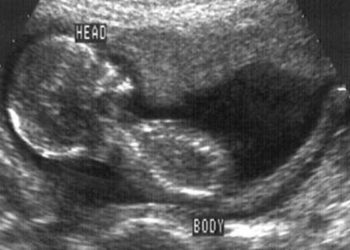Significant racial disparities in preterm births in infants conceived by IVF
Image: PD
1. Black women are at increased risk for preterm birth in both singleton and twin in vitro fertilization (IVF) gestations.
2. Hispanic women are also more likely to experience preterm birth compared to whites, while Asian women were less likely to experience preterm twin birth.
Evidence Rating Level: 2 (Good)
Study Rundown: Findings from the large national SART database demonstrate racial disparities in risk for preterm birth. In this study, black women were at increased risk for all forms of preterm birth in both singleton and twin pregnancies and Hispanic ethnicity was also associated with a slight increase in risk for some forms of preterm birth. These differences may reflect biological differences in genetic predisposition or differences in socioeconomic status, lifestyle and cultural factors. However, the findings of this study conducted in a generally higher-income population (couples conceive via IVF) might suggest that socioeconomic factors are less likely to drive racial differences in preterm birth risk.
Strengths of this study include large sample size and consideration of numerous confounding factors (BMI, smoking, age, gravidity, infertility diagnoses). Limitations include missing race/ethnicity data for 36.5% women and lack of inclusion of socioeconomic factors. Future investigations could make use of a prospective cohort design including the ethnicity of both biological parents, and income and education level would provide insight into the complex relationship of ethnicity and preterm birth.
Click to read the study in the American Journal of Obstetrics and Gynecology
Relevant Reading: Epidemiology and causes of preterm birth
In-Depth [retrospective cohort study] examined the association between race and preterm birth among infertile women using the Society for Assisted Reproductive Technology Clinic Online Reporting System (SART CORS) to examine over 140,000 singleton and twin pregnancies resulting fresh, non-donor in vitro fertilization (IVF) cycles between 2006 and 2010. Preterm birth was categorized as very early (<28 weeks), early (<32 weeks) and preterm (<37 weeks).
Compared to white women, black women with singleton pregnancy were more likely to experience all forms of preterm birth: very early (OR 4.8, CI 4.1-5.7), early (OR 3.9, CI 3.4-4.4) and preterm (OR 2.1, CI 1.9-2.3) births; a similar trend was observed in twin pregnancies. Hispanic women with singleton pregnancy were more also more likely to experience early preterm (OR 1.5, CI 1.3-1.8) and preterm (OR 1.2, CI 1.1-1.3) birth and were at increased odds for very early preterm birth in twin pregnancies (OR 1.4, CI 1.2-1.8) compared to whites. Asian women were less likely to experience preterm twin birth (OR 0.8, CI 0.7-0.9, p<0.01). Native American women were not at increased risk for preterm birth.
By Denise Pong and Leah Hawkins
More from this author: Internal monitors associated with fever in laboring mothers, Biennial mammography confers increased specificity for cancer screening, New approaches effective in screening embryos for diseases
© 2013 2minutemedicine.com. All rights reserved. No works may be reproduced without written consent from 2minutemedicine.com. Disclaimer: We present factual information directly from peer reviewed medical journals. No post should be construed as medical advice and is not intended as such by the authors or by 2minutemedicine.com. PLEASE SEE A HEALTHCARE PROVIDER IN YOUR AREA IF YOU SEEK MEDICAL ADVICE OF ANY SORT. Content is produced in accordance with fair use copyrights solely and strictly for the purpose of teaching, news and criticism. No benefit, monetary or otherwise, is realized by any participants or the owner of this domain.







